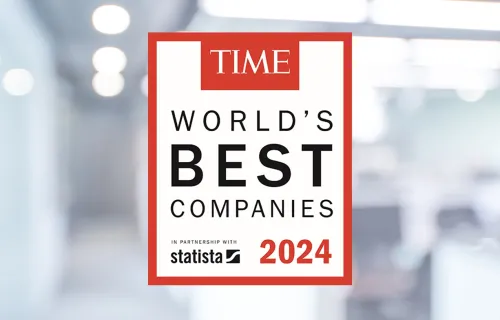The Lafayette Engagement and Research Network (LEaRN) was born out of the U.S. Environmental Protection Agency’s Smart City Air Challenge in 2016 inviting communities to find ways to collect and manage air quality data gathered from sensors. A collaborative project, LEaRN pooled resources and expertise from CGI’s U.S. Delivery Center in Lafayette, local government, academia, and non-profit entities to build and deploy an IoT-based air quality sensor network across the metropolitan Lafayette, Louisiana area. The air quality sensor network leverages emerging technologies such as edge computing, cloud-native capabilities, open geospatial standards, and CGI’s Kinota analytics solution to provide near real-time environmental monitoring as a public service.
The community rallied around this initiative, leading to strengthened public-private partnerships, a new avenue for local research, and increased public awareness of citizen science opportunities. As a testament to the success of this initiative, the community recognizes LEaRN as a multi-dimensional tool for science, technology, engineering, and mathematics (STEM) education, a robust data source for citizen scientists and collegiate researchers, and a catalyst for community collaboration.
Community partner engagement
The LEaRN project is a collaborative experience. The team engaged with multiple groups within the Lafayette community to foster buy-in, determine what success looks like, answer current needs, and anticipate future needs. The following stakeholders are active partners in the initiative:
Local government - As an early adopter of LEaRN’s sensor network, representatives from Lafayette Consolidated Government (LCG) were a core part of the LEaRN team. Through regular listening sessions around sensor siting, communications and infrastructure, LEaRN provided a firm understanding of the project to partner members early on in the project lifecycle.
Local K-12 education - LEaRN partnered with a local, combined junior and senior high school, David Thibodaux STEM Magnet Academy (DTSMA), to build many of the sensors. Through the sensor fabrication process, students gained hands-on experience in electronics theory and skills (circuit design, soldering, etc.). Additionally, LEaRN hosted a half-day teacher training to educate teachers on how to extract data from LEaRNDash and conduct analyses on it. The Lafayette Parish School System science specialist worked with teachers on lesson plans based on the sensor data. These lesson plans touched on working with spreadsheets and big data, and conducting scientific analyses.
Higher education - Beginning in the fall of 2019, undergraduate students from University of Louisiana at Lafayette’s College of Informatics worked with the LEaRN team as part of their senior capstone projects including exploring and utilizing the data collected by the LEARN air sensor network and back-end development.
IT industry - A new approach to managing large amounts of data with an efficient and cost-effective method enabled the LEaRN team to engage in discussions around IoT, smart communities, environmental monitoring, and engineering. The applicability of the technology employed is far broader than its origin in air quality, encompassing many aspects of environmental monitoring (water quality, crop monitoring, flood early warning, etc.) as well as emergency response, infrastructure monitoring, transportation demand management, and public safety.
Collaboration drives value and innovation
LEaRN brought together local government, public and higher education, local industry, and community stakeholders to develop, deploy, and utilize distributed sensors. This effort proved that smart community initiatives can be implemented on a relatively low budget, with high return on investment in numerous areas of local community.
The CGI team was able to develop intellectual property while forging new relationships and strengthening existing ones. LCG was able to support the community with a new IoT open-data platform giving citizens insight into their environment. Young students learned valuable technical skills and were introduced to scientific concepts from their own backyard. Student researchers worked with industry professionals to develop projects which support their studies and make meaningful contributions to LEaRN’s body of research. Industry leaders learned more about smart communities and became advocates for improving the local space, which has long-term benefits on the resident workforce.
The LEaRN team will continue to develop these outcomes with its next project given that the impact of local communities working together to achieve goals for social good improves the lives of all of us.
Read our 2020 CSR report to learn how our members are using their technical skills and expertise to support the communities in which we live and work.
Kinota is a trademark of CGI Inc. or its related companies.





